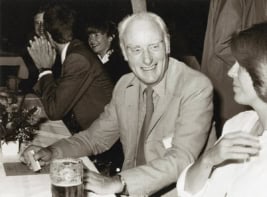Applications for the Institute of Physics’ 2022 awards are open until 14 February 2022

Everyone loves winning a prize, right? In physics, it’s a sign you’ve done important and influential work that’s been recognized by your peers. A prize signifies a job well done and achievements that matter for the progress of physics. Few scientific awards come with much financial reward, so it’s about the kudos, not the cash.
But who gets to win awards in the first place? And how can we ensure that those physicists who most deserve prizes get properly rewarded?
If you can only win by being nominated by someone else, there’s a danger that prizes will end up in the hands of those with influential colleagues in high places. And if the application process is off-putting or complex, there could be a bias towards nominations by people who know how to “play the game”.
It was for those kinds of reasons that the Institute of Physics (IOP), which publishes Physics World, last year revamped its awards, to allow self-nominations for the first time and to encourage a wider pool of applicants through greater publicity.
Coming in response to criticisms that previous groups of winners did not accurately reflect the diversity of the physics community, these changes are starting to have some effect.
Quantum physicist David Deutsch bags Isaac Newton Medal and Prize
Of those winners of IOP awards last year who chose to include data about their personal background, some 19% were from Black, Asian or other minority-ethnic groups (for comparison they make up 16% of UK academic physics staff).
Still, the only way to ensure that deserving candidates don’t get overlooked this year is to step forward yourself or nominate others. Awards are given to everyone from early-career scientists and teachers to technicians and subject specialists – so who do you think should win?
- The deadline for entries to the IOP’s 2022 awards is 14 February 2022 – apply at www.iop.org/about/awards. The Isaac Newton Medal and Prize and honorary fellowships are for individuals of any nationality. The gold, silver-subject and bronze early-career medals and prizes are for individuals or teams making contribution in the UK or Ireland, as are the technicians’ awards.




